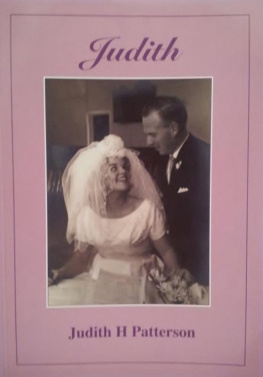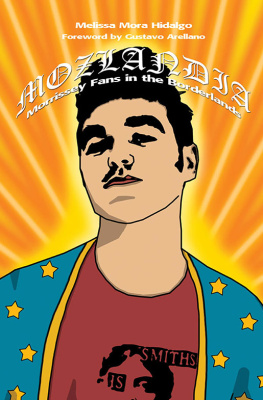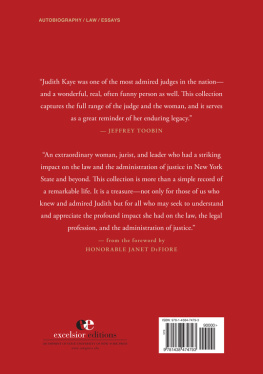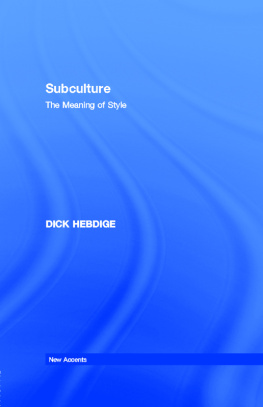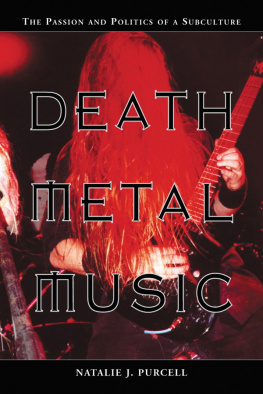University of Iowa Press, Iowa City 52242
Copyright 2020 by the University of Iowa Press
www.uipress.uiowa.edu
Printed in the United States of America
Design by Ashley Muehlbauer
No part of this book may be reproduced or used in any form or by any means without permission in writing from the publisher. All reasonable steps have been taken to contact copyright holders of material used in this book. The publisher would be pleased to make suitable arrangements with any whom it has not been possible to reach.
Printed on acid-free paper
Library of Congress Cataloging-in-Publication Data
Names: Fathallah, Judithauthor.
Title: Emo: How Fans Defined a Subculture / Judith May Fathallah.
Description: Iowa City: University of Iowa Press, [2020] | Series: Fandom and Culture | Includes bibliographical references and index.
Identifiers: LCCN 2020007861 (print) | LCCN 2020007862 (ebook) | ISBN 9781609387242 (paperback) | ISBN 9781609387259 (ebook)
Subjects: LCSH: Emo (Music)Social aspects. | Rock music fans. | Gender identity. | Emo (Music)History and criticism. | SubcultureHistory.
Classification: LCC ML3918.R63 F38 2020 (print) | LCC ML3918.R63 (ebook) | DDC 781.66dc23
LC record available at https://lccn.loc.gov/2020007861
LC ebook record available at https://lccn.loc.gov/2020007862
INTRODUCTION
THE PREMISE
Emo is bullshit. Its something for girls who are fifteen.... There is no movement, there is no way of thinking, there are no musicians. You guys confuse punk, hardcore, you confuse screamo, you combine all the currents, just to give meaning to your stupid and idiotic movement.
DJ Kristoff, during the runup to a spate of violence against emo kids in Mexico City
Insult, identifier, genre, youth scene: the label emo has a difficult history.
The full term emotional hardcore first emerged in 1980s zines and trade press to describe a handful of post-punk bands in US cities, such as Rites of Spring and Embrace. These bands developed as a reaction against and in modification of the all-macho, all-rage, intermittently racist excesses of local hardcore punk scenes.
In the early 2000s, it was still common for young people to dismiss bands and styles for being gay, a charge so ubiquitous against emo bands that Fall Out Boy eventually produced a song titled Gay Is Not a Synonym for Shitty. Williams, Peters, Carillo-Vincent, Ryalls, and de Boise all discussed the relationship of emo to subordinate and Othered forms of masculinity. His book gives the impression that while we can chart musical consistencies running all the way from Rites of Spring to the bands called emo today, we are then in realms of generality so broad that we might as well just call it alt-rock and could substitute hundreds of other bands without changing the parameters of the discourse. Discoursein this case, all the statements from trade press, marketers, musicians, critics, and fansis that dynamic, active property of language that defines and defends the boundaries of ideas, such as music genres or ideas of quality music.
In this book, I argue that the meaning of emo as a genre has been shaped by its fandom, a process with significant implications for fan studies and fandomindustry relations. Fabian Holt wrote in 2007 that struggles about names and definitions are often an integral part of the histories of individual musics and their cultural dynamics; and that genre boundaries are contingent upon the social spaces in which they emerge and upon cultural practices, not just musical practices.modern emo that moves gradually from sites and practices that are more like a broadcast, top-down media model toward sites and practices that are more like bottom-up user-generated content (UGC). This is part of why I claim that fandom shaped it. To be clear, I dont wish to suggest some kind of absolute temporal narrative, as though meaning were collected along a timeline from less to more or from top-down to user-generated. Discourse is always in fluxsignifiers are never closed totallybut it is nonetheless reasonable to posit that sites like MySpace helped establish the terms and boundaries that initiated this discursive struggle in the early 2000s, even though most MySpace users would not have described themselves or their bands as emo at the time.
As readers may have realized, one key point of my argument is that the genres meaning is constructed in large part retrospectivelyjust as a meme points backward to all its past iterations to consolidate and subvert them, what emo was has primarily been constituted by fandoms practice of commentary and archiving after the fact. Online discourse is now an important aspect of most genre constructions, and emo provides a particularly salient example to the development of fan cultures. By charting the shaping of emo, we can observe how fandoms statements and categorizationsnot to mention humorwork their way back around into the statements of subcultural celebrities and the music press. The definitions become retrospectively author-ized. Through this process, the term emo has become what discourse theorists Laclau and Mouffe might describe as fixed. Its meaning or referent has been struggled over, pulled back and forth, and gradually come to the point that fans know precisely what is meant by a one-word meme or joke. This degree of referential shorthand is only possible in a well-defined discourse. It seems that, contra Greenwald, online emo fandom knows precisely what it is. Most strikingly, and in illustration of this fixing process, fandoms creative definitional work has come full circle, being adopted back into the music press and even the statements of musicians who once dismissed it.
On one hand, this book answers Oliver Marcharts call for the reconnection of micro and macro aspects of sociopolitical practice in the field of subcultural studies. I think this was an unsupported and dubious claim even in 2007, and it is clearly not tenable now. This study has significant implications for the changing relationship between fandoms and industry, not just with regard to genre and categorization but also with definitional and boundary construction in general.
There are points in Greenwalds book where he seems to define emo as simply the shared experience of sensitive young people in the digital era: With the internet, teenagers have the ultimate emo toola private medium that their parents dont understand, one where they can easily trade, access, and share music, ideas, news, feelings, and support.The annotations are endless and stylistically distinct. As a ruleand contra Greenwalds association of emo with earnestnessthis material is humorous, self-mocking, and fluent in meme, simultaneously acknowledging and reflexively distancing the writer from the content.
Although Greenwald does not sufficiently address the active role online fandom plays in constructing emo, he attributes the importance of the internet to the webs capacity to compress time and connect teenagers who are alienated from their immediate physical communities. This accords with my experienceI discovered emo on MySpace when I was about fifteen. I had not long been released from traumatizing inpatient treatment for anorexia (that most problematically gendered of diseases) and was still suffering quite badly from that disorder. I felt entirely alienated from my family and peer group. But having grown up listening to the same and related bands todays teenagers are now discovering, it seems to me that the new fan discourse is more knowing, more (self-)parodic, more reflexive, and far less respectful than early 2000s fandom, in line with the rise of social media and the development of what Paul Booth has called the philosophy of playfulness on the internet.


